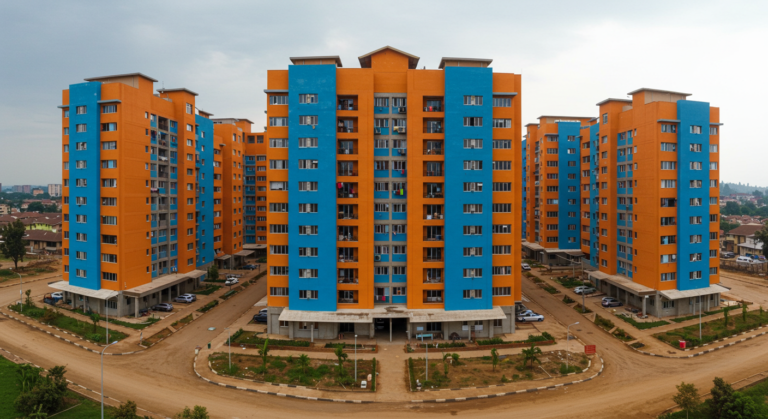Why Having a Lease Agreement with Your Landlord is Essential for Tenants and Landlords
- A lease agreement is a legally binding contract between a landlord and a tenant that outlines the terms and conditions of renting a property.
- Lease agreements have become a non-negotiable part of landlord-tenant relationships.
- Gone are the days of casual, unwritten arrangements.
Over the years, lease agreements have become a non-negotiable part of landlord-tenant relationships. Gone are the days of casual, unwritten arrangements, people now take extra steps to safeguard their rights, finances, and overall well-being. A lease agreement isn’t just paperwork; it’s a powerful shield, protecting both tenants and landlords like a double-edged sword. But what exactly does it cover, and why is it so essential for both parties? Let’s break it down.
What is a Lease Agreement?
A lease agreement is a legally binding contract between a landlord and a tenant that outlines the terms and conditions of renting a property. It sets clear expectations, establishes responsibilities, and prevents misunderstandings. Without one, both parties are left vulnerable to disputes, financial losses, and even legal complications.
Why Lease Agreements Matter for Tenants
For tenants, a lease agreement is more than just paperwork, it’s protection. Here’s how:
Rent and Payment Terms are Clearly Stated
A lease agreement clearly outlines the amount of rent, the expected day for rent payment and payment method. This is important as it prevents landlords from randomly increasing rent or making sudden demands that weren’t previously discussed.
Security Deposit Protection
Security deposits have been a source of countless disputes, with many tenants finding themselves shortchanged when landlords withhold part, or even all of their deposit under the guise of repair costs. More often than not, this happens when there’s no lease agreement in place. That’s why having one is crucial, it clearly outlines the deposit amount, what it covers, and the conditions for its return. With these terms set in stone, tenants can avoid unexpected deductions and ensure a fair refund at the end of their lease.
Stability and Peace of Mind
A lease agreement gives tenants peace of mind and stability, protecting them from sudden or unfair evictions. Without it, a landlord could ask a tenant to leave without proper notice or a valid reason. But with a lease in place, tenants can feel secure knowing they have a guaranteed place to live for the agreed-upon term, making it easier to plan ahead and settle in comfortably.
Maintenance Responsibilities are Defined
Who handles repairs? What if an appliance breaks down? These are common concerns that can lead to a lot of unnecessary back and forth. A lease agreement clears up any confusion by outlining responsibilities upfront, ensuring tenants aren’t stuck with costs they shouldn’t have to cover. It’s all about transparency and fairness for both sides.
Why Lease Agreements Matter for Landlords
Just as tenants benefit from lease agreements, landlords gain security and structure from them as well. Here’s why:
Guaranteed Rental Income
Rent is a landlord’s source of income, and it’s only fair that it’s paid on time. But let’s be honest, not all tenants are consistent with their payments, which can create real challenges for landlords. This is where a lease agreement becomes essential. A signed lease makes it clear that tenants are legally obligated to pay rent on time, ensuring landlords have a steady, predictable income without the constant worry of late or missed payments.
Property Protection
Having your property safeguarded is the goal of each and every property owner. A lease agreement helps do that by clearly outlining rules on how it can be used, whether subleasing is allowed, and who is responsible for damages. This prevents unauthorized activities and costly repairs, ensuring the property remains well-maintained and protected.
Legal Coverage
Disputes are sometimes unexpected but the reality is, they do happen. It could be a case of unpaid rent, damages, or even lease violations. Lease agreements in this case serve as legal proof to support the landlord’s claims in court.
Clear Move-Out Terms
Nobody likes last-minute surprises, especially when it comes to vacant rentals. A lease agreement sets clear move-out terms, including how much notice a tenant must give before leaving. This gives landlords time to find new tenants and avoid unexpected income gaps.
Key Clauses Every Lease Agreement Should Have
To be truly effective, a lease agreement should include:
- Rent amount, due date, and late fees
- Lease term (start and end date)
- Security deposit amount and return conditions
- Maintenance and repair responsibilities
- Rules on property use (e.g., pets, guests, noise restrictions)
- Eviction terms and conditions
Conclusion
A lease agreement isn’t just a piece of paper, it’s a powerful tool that protects both tenants and landlords from unnecessary stress, financial losses, and legal headaches. Whether you’re renting out a property or looking for a place to live, having a well-structured lease agreement ensures a smooth and secure rental experience for everyone involved.
Before signing, always read the terms carefully, ask questions if needed, and make sure both parties fully understand their rights and responsibilities. A little diligence upfront can save a lot of trouble down the road.








